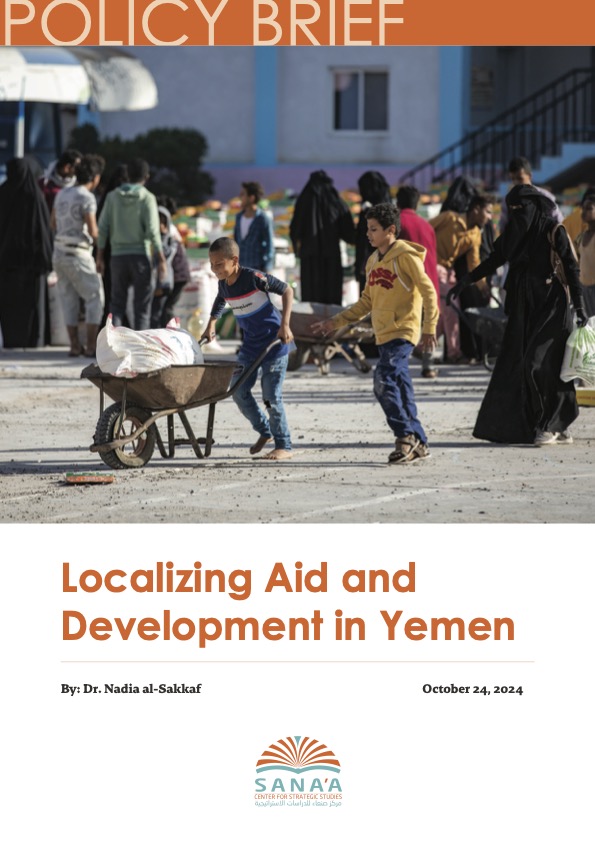Executive Summary
This study examines the key barriers and opportunities regarding localizing humanitarian aid in Yemen. The findings reveal a significant gap between the international community’s intent to localize aid and the reality on the ground. Challenges include Yemen’s fragmented political landscape, weak governance, and a limited understanding of what localization entails. Further, the lack of sustained investment in local organizations, especially those in rural areas or led by women, has hampered efforts to empower Yemeni actors. Internal issues within Yemeni civil society, such as monopolies over donor partnerships, also exacerbate the problem.
These issues leave international entities struggling to find effective Yemeni partners. At the same time, Yemeni local communities, civil society, and the private sector are desperate for genuine leadership. While expressing interest in a more localized approach to aid in Yemen, the international community has insisted that localization efforts must be linked to the presence of effective local leadership. Conversely, local entities argue that investment in Yemeni institutions and skills must come first.
Key Findings:
- Localization is seen as critical for sustainable aid delivery, but its implementation is hindered by political fragmentation and an absence of robust local leadership.
- Yemeni civil society, while eager for leadership opportunities, is limited by insufficient funding and capacity-building support, particularly for smaller community-based organizations (CBOs) and women-led initiatives.
- Donor focus remains largely centralized, leaving rural areas and marginalized groups underrepresented in aid programs.
Key Recommendations:
- Define localization clearly: Establish a unified definition of localization tailored to Yemen’s context and aligned with global principles.
- Invest in capacity building: Donors must fund capacity-building efforts that strengthen local organizations’ institutional frameworks, particularly smaller CBOs and women-led groups.
- Foster inclusive partnerships: Encourage equitable, genuine partnerships between international and local actors, ensuring shared decision-making.
- Simplify bureaucratic processes: Use political mediation to streamline administrative procedures and reduce interference from authorities.
- Increase flexible funding: Allocate a greater share of flexible funds directly to Yemeni organizations, focusing on local needs and priorities.
This report was produced as part of the Applying Economic Lenses and Local Perspectives to Improve Humanitarian Aid Delivery in Yemen project, funded by the Swiss Agency for Development and Cooperation.

 اقرأ المحتوى باللغة العربية
اقرأ المحتوى باللغة العربية
